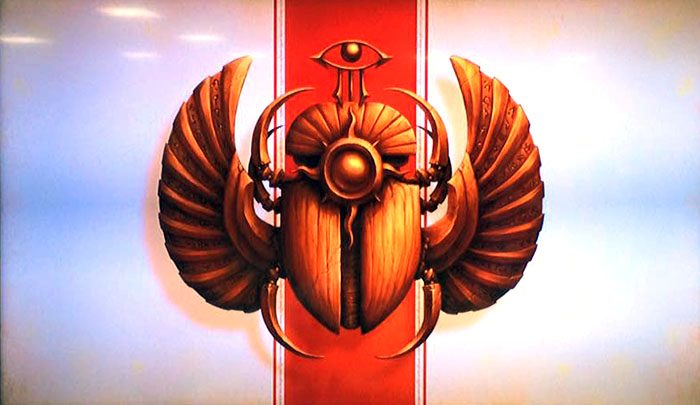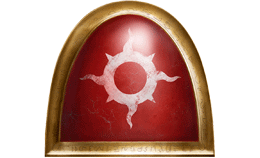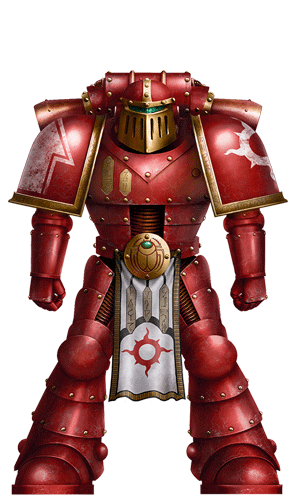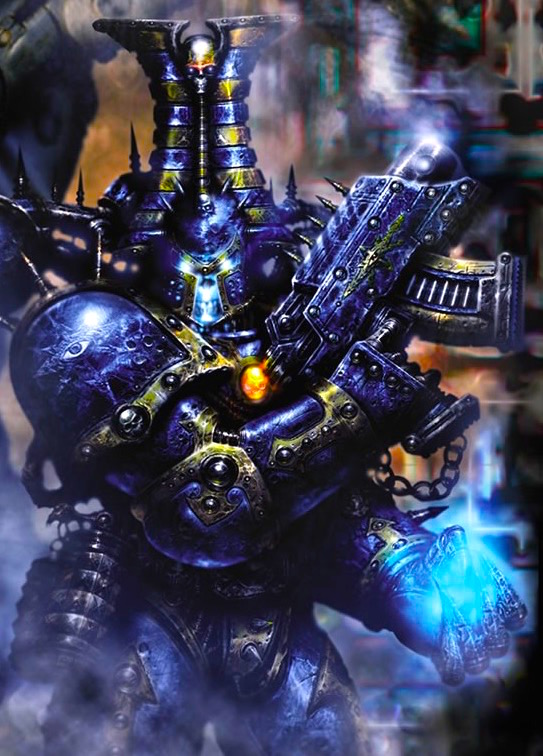40K Lore: Thousand Sons – Deep Delve


Today Loremasters we delve past the history into the inner workings of the Thousand Sons.
The Thousand Sons were the XV Legion of the original twenty Space Marine Legions. Their Primarch is Magnus, often called Magnus the Red. The Legion turned traitor during the Horus Heresy, after which it relocated to Sortiarius, the Planet of Sorcerers, in the Eye of Terror, and dedicated itself to the Chaos God of change, sorcery and magic, Tzeentch. For a time it appeared that Tzeentch protected the Thousand Sons from the corruption and fragmentation that most of the other Traitor Legions underwent, but eventually the Legion went through a crisis of mutation and de-evolution, seemingly at the wish of their patron-God. Aghast at this development, their chief sorcerer, Ahriman, cast a powerful spell designed to render the Thousand Sons immune to the warping effects of Chaos. While the spell succeeded in this goal, it had an unforseen consequence of transforming the mutated Thousand Sons into little more than mystically animated suits of armour barely capable of being termed as anything more sentient than automata.
With the only surviving cognisant members being those incredibly strong in heretical psychic powers, the Thousand Sons are now a legion of ghosts led by the damned.
Organisation
Magnus placed great emphasis on ensuring that legion officers could operate independently from him, going to lengths to ensure they were taught all that he believed they would need to succeed at command, including otherworldly skills. Before the Heresy the individual Thousand Sons squads were led not by established veteran warriors, but by those who showed the most psychic potential. These junior officers were also effectively apprenticed to more experienced officers for cult training. As a result of the emphasis on leaders having strong psychic ability, senior officers of the legion typically became considerably experienced in both typical battlefield combat and in the use of their powers.
Always a numerically small legion, the Thousand Sons rarely ever took to the field in great numbers. They would normally operate in small detachments, whose leader could effectively hold much more independent authority than officers in comparable positions in other Legions. With the events following the Heresy, this habit has become more pronounced.
Before the Heresy, the Thousand Sons operated several Fellowships roughly equivalent to Companies. While there were originally ten, after the events in the Kamenka Troika the legion was reorganised into nine Fellowships. Each Fellowship was led by a powerful Psyker. Spread out among these Fellowships were several Cults that specialized in different Psychic disciplines.
While Magnus himself remains the ruler of the Planet of the Sorcerers, he is increasingly aloof with the affairs of the Materium and is spending much of his attention waging the Great Game of the Ruinous Powers. Thus since the events of the Heresy the Thousand Sons have largely operated as independent warbands under the control of Sorcerers.
Geneseed
As befits the genic offspring of such a colossal psychic mutant as Magnus, the geneseed of the Thousand Sons appeared to ensure the development of psychic ability. It also appeared to bring with it an unavoidable fate of physical de-evolution, but it is unknown exactly what influence Tzeentch had on the development of the Thousand Sons and their geneseed and from what point this influence began. The Flesh-Change as this de-evolution was known, was a major threat to the Legion that manifested when its members used their psychic abilities. When overcome by the Flesh-Change, a member of the Thousand Sons would rapidly mutate into a hideous beast resembling a Chaos Spawn. Due to its psychic nature, the Flesh-Change was contagious and epidemics of it were a constant terror among the Legion. Magnus and others within the Thousand Sons worked diligently to find a cure for the Flesh-Change, and it is implied that Magnus may have gained the aid of Tzeentch to suppress it. However ultimately, no cure could be found and during the Great Crusade the Thousand Sons suffered a slow death from its gene-seed flaw.
Regardless, when the Rubric of Ahriman took hold of the legion, most of their geneseed was destroyed. The only viable sources now known of are the surviving sorcerers of the Thousand Sons, powerful psykers who are so invested of the powers of the warp that the condition of their geneseed and the effects it would have upon someone implanted with it can only be guessed at.
Culture & Quest for Knowledge
For the Thousand Sons, knowledge is power, and the most knowledgable the most powerful. Arising from the origins of their first recruits and being driven by the early legion’s need to discover a cure for the flesh-change and gain deeper understanding and control of their psychic abilities, these linked beliefs resulted in two major cultural factors developing in the Thousand Sons; veneration of the text and veneration of their Primarch.
As a result, the Thousand Sons, while sworn to the Emperor and the Imperium in word and duty, found that at the moment of testing, their loyalty to their primarch and their desire to preserve their acquired knowledge was enough to lead them down the path of damnation.
The legion’s desire to learn how to control their powers developed into a hunger for any and all knowledge. Driven from an origin of self-interest, their desire to know as much as possible and master every discipline available to learn caused them to seek shortcuts or explore morally perilous paths, especially once Magnus and his own insatiable hunger for knowledge encouraged them to progress from simple scholarship into the practice of sorcerous techniques. As a result, they have long held every record of information as a valuable item in itself, as well as a resources to be drained. Ahriman in particular has, since the Heresy, dedicated himself to this desire seemingly above loyalty to his primarch and even to Chaos itself.
While the Thousand Sons have an interest in all forms of knowledge, they particularly pursue items or places that may hold sorcerous power or reference arcane secrets. As a result, it is not unusual at all for a Thousand Sons warband to raid a museum, library or private art collection rather than a military target. And while many Legions sponsor Chaos-worshipping cults, the Thousand Sons tend to use theirs not to overthrow or destabilise Imperial power, but more rather as collectors of items and people they are interested in; much to the chagrin of cult leaders, as when a Thousand Sons warband finally answers a summons, they tend to simply leave with the cult’s artefacts and best sorcerous practitioners not long after.
Recruitment
Like all of the Legiones Astartes the Thousand Sons were initially made up of Terran marines. In the aftermath of Magnus’ deal with Tzeentch to save their lives, only around a thousand of them were left. For the rest of the Crusade, the Thousand Sons recruited from Prospero, a planet of only limited population (although many of them were psychically active). As a result the Thousand Sons were never a large legion.
How the Thousand Sons currently maintain their numbers is unknown, although they have been observed carrying out an apparent resurrection ritual at least once. On this occasion the spirits of deceased Thousand Sons were summoned from the warp into mortal bodies (whether living or dead making no particular difference), bodies which then transformed themselves into reborn Thousand Sons.
At least one Imperial commentator on the subject believes that the Thousand Sons have a cult network that provides potential recruits for the legion.
Learn More of the Thousand Sons
~ All is Dust








